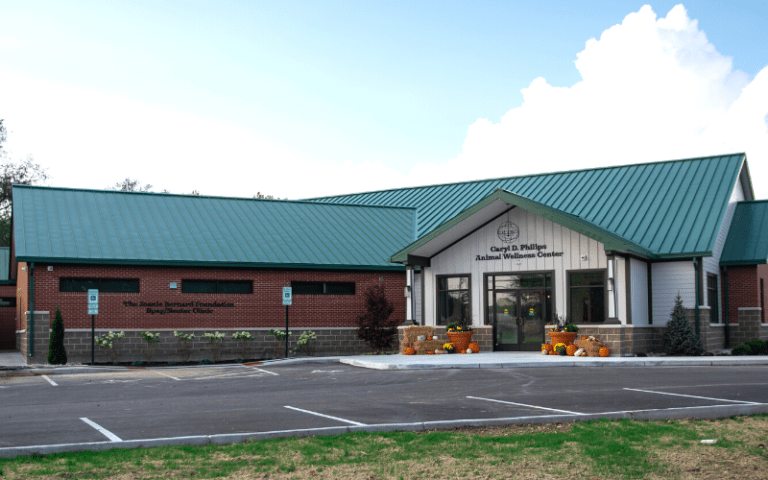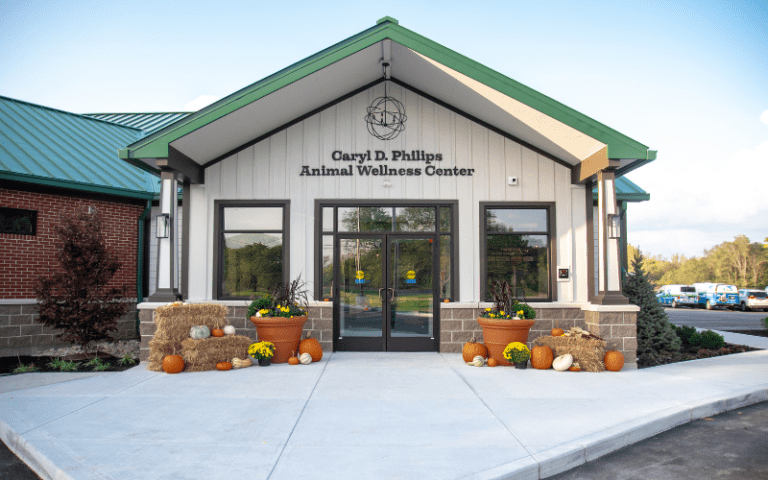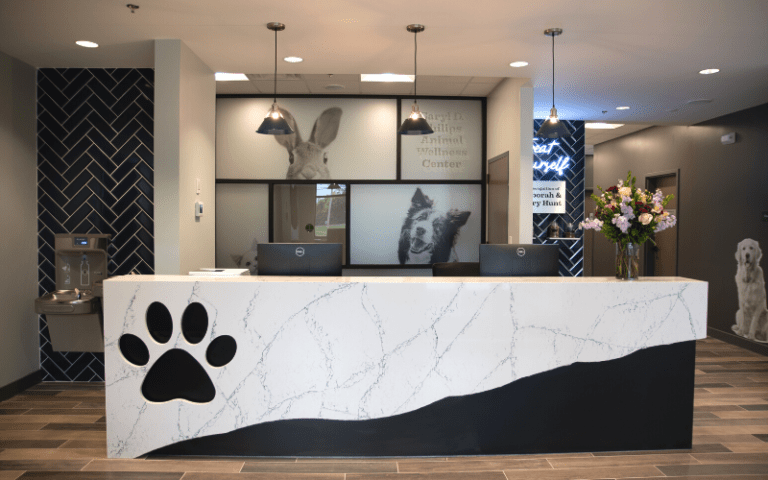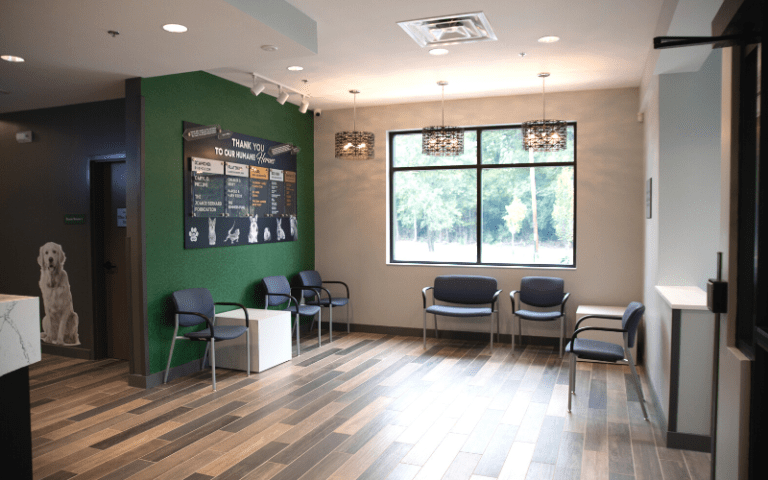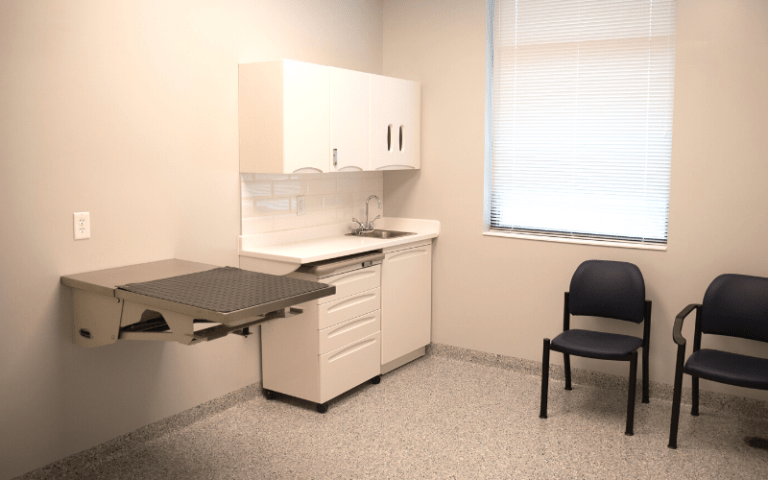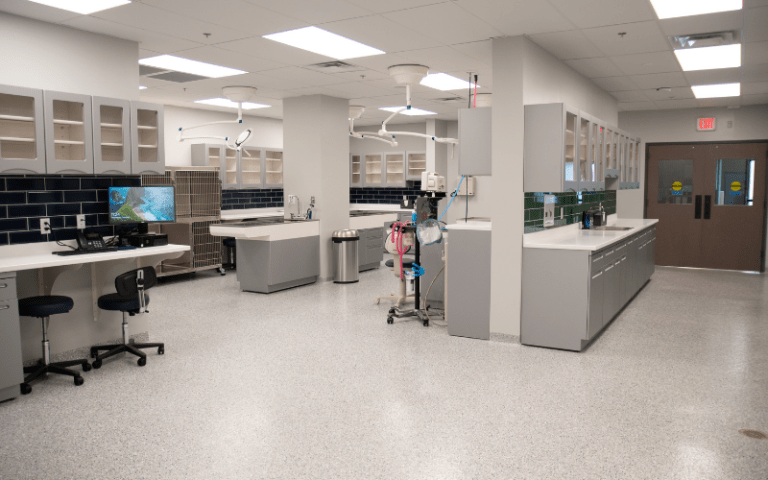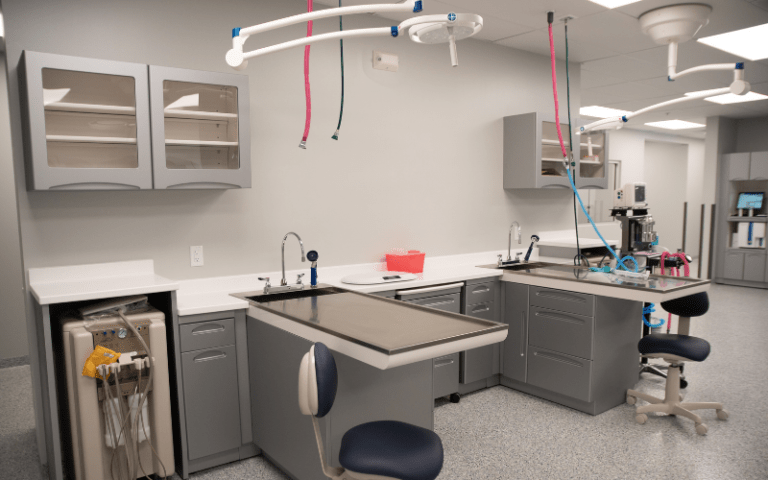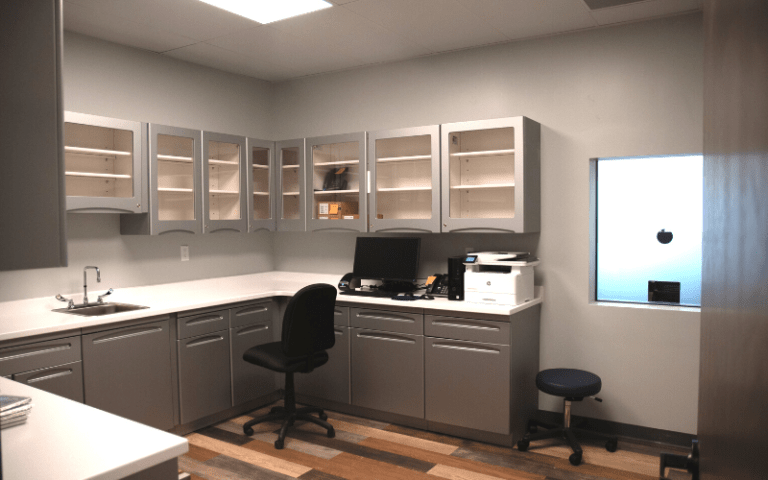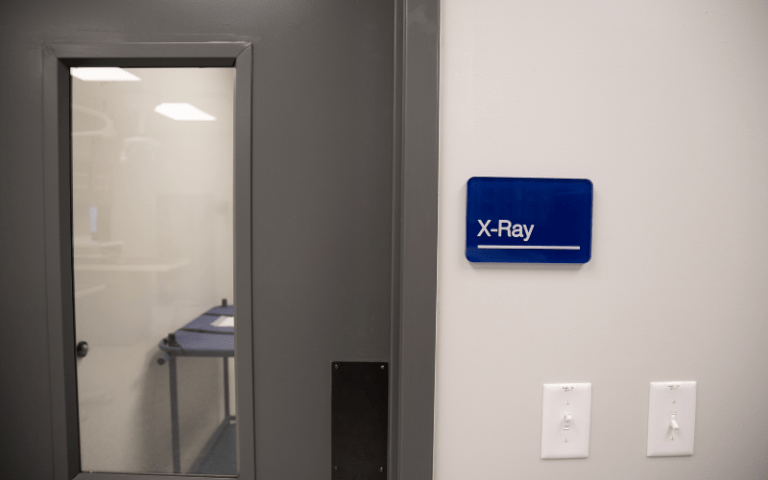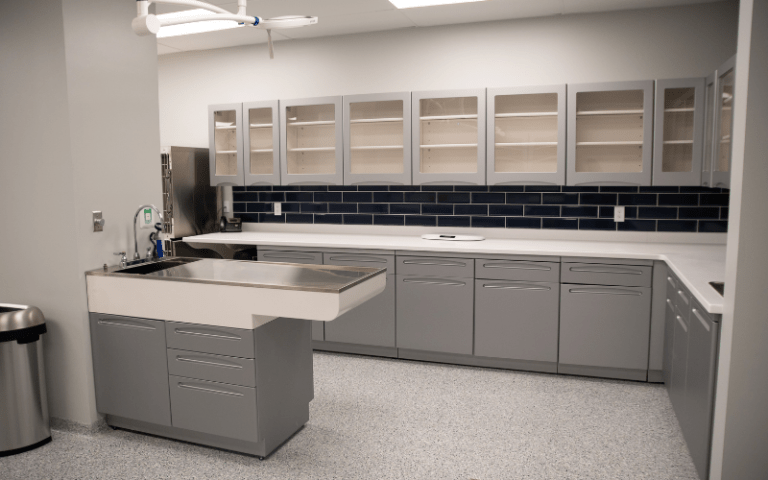Pets are family, and when they need care, you want a provider you can trust. At the Dayton Humane Veterinary Hospital, part of the Humane Society of Greater Dayton, we offer compassionate, high-quality care at an affordable price. As a leading veterinary hospital in the region, our team is here to support your pets with a wide range of services.
If you're searching for an animal hospital near me, our expert staff and low-cost options make us the go-to provider for Dayton families.
Call us today at (937) 884-4324 or click below to schedule an appointment.
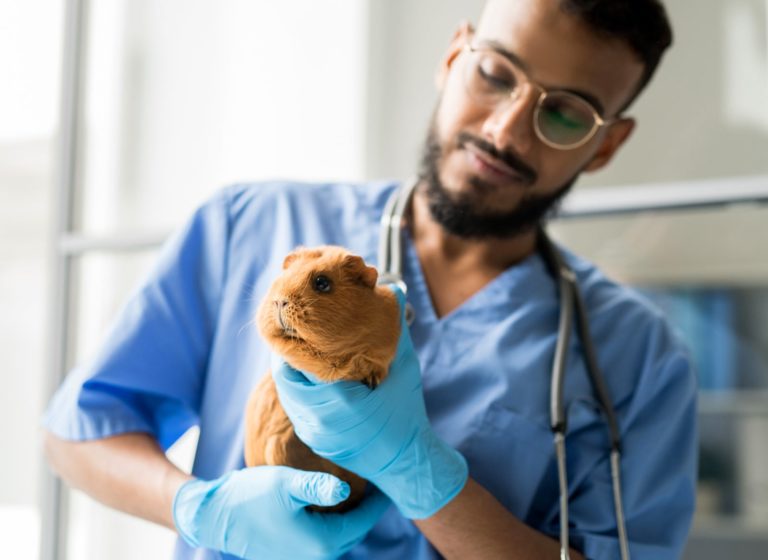
Dedicated to You and Your Pets
Pets are like extended members of our families, and as owners, providing them with quality care is important. We understand that this may typically be expensive. However, thanks to our low-cost services at the Dayton Humane Veterinary Hospital, we are able to provide your pets with compassionate and quality veterinary care.
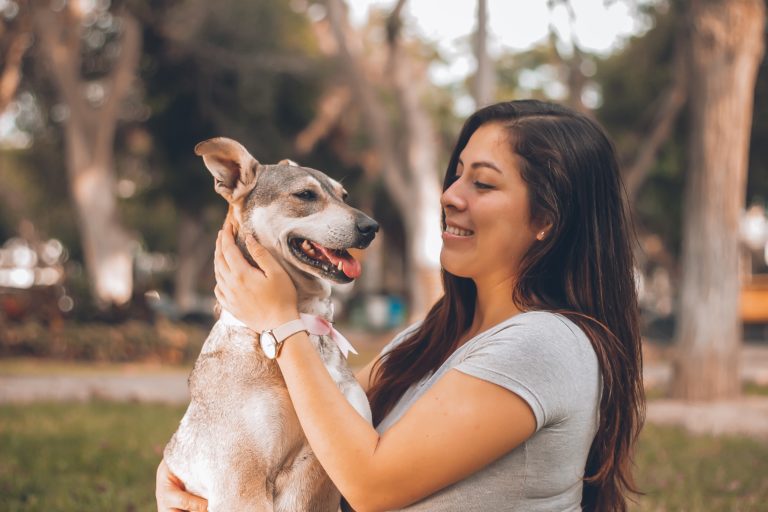
Financial Assistance
We understand that financial constraints shouldn’t stand in the way of your pet’s health. That’s why the Humane Society of Greater Dayton offers financial assistance options through our veterinary hospital. Our friendly customer service team is ready to help you understand pricing, provide care estimates, and walk you through flexible payment plans.
Visit our FAQs for full details on assistance options or call (937) 884-4324 to speak with our team.
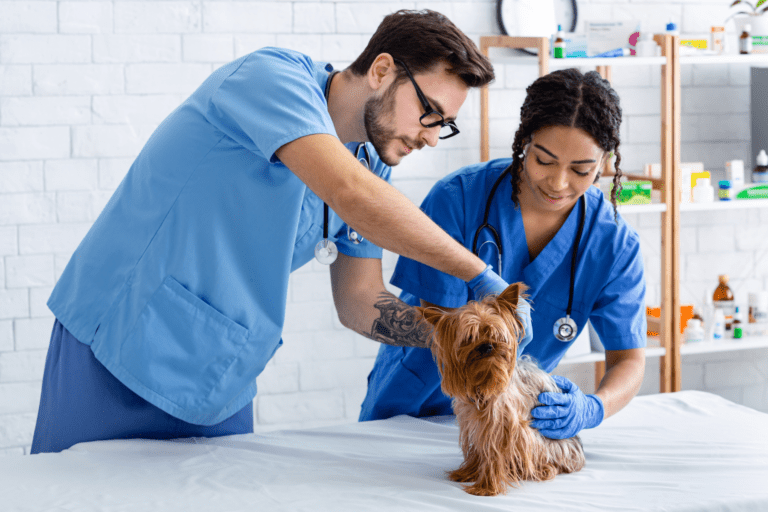
Services We Provide to Your Pets
At the Dayton Humane Veterinary Hospital, we see patients by appointment only. We are not staffed for critical care cases and will refer emergencies and critical care needs to MedVet or the Care Center.
Services we provide include:
- Physical Exams
- Vaccinations
- Nail Trims
- Microchipping
- In-House Laboratory Testing
- X-Rays
- Chronic Illness Management
- Allergy Issues
- Limping or Injury Evaluation
- General Surgery
- Dental Cleanings & Extractions
- Dental X-Ray
If you’re seeking an animal hospital in the Dayton area that combines quality with compassion, look no further than the Humane Society of Greater Dayton.

One Health Program
The One Health Program at the Dayton Humane Veterinary Hospital goes beyond traditional care. Managed by a licensed social worker, the program addresses broader community needs such as housing insecurity, abuse, mental health, hoarding, and grief from pet loss.
We work directly with clients, humane society agents, and veterinary professionals to ensure that both animals and their owners are supported. It’s a truly holistic approach that sets our veterinary hospital apart.

Healthier at Home In-Home Veterinary Care
The Humane Society of Greater Dayton proudly offers mobile veterinary care through our Healthier at Home program. This in-home veterinary care service ensures pets receive the attention they need in the comfort of their own environment—reducing stress for both pets and owners.
Schedule an Appointment Today
Please fill out the form through the link below or call us at (937) 965-4399, and we will have someone reach out to you to schedule a time for one of our veterinary services.
Helping with Sunny's Care
Angela F.My cat Sunny had a broken tooth and needed surgery. They took him in for an extraction and were wonderful to him and our family. They explained everything in detail and even helped with payment arrangements. They really helped us navigate the process of Sunny's injury. Thank you so very much.
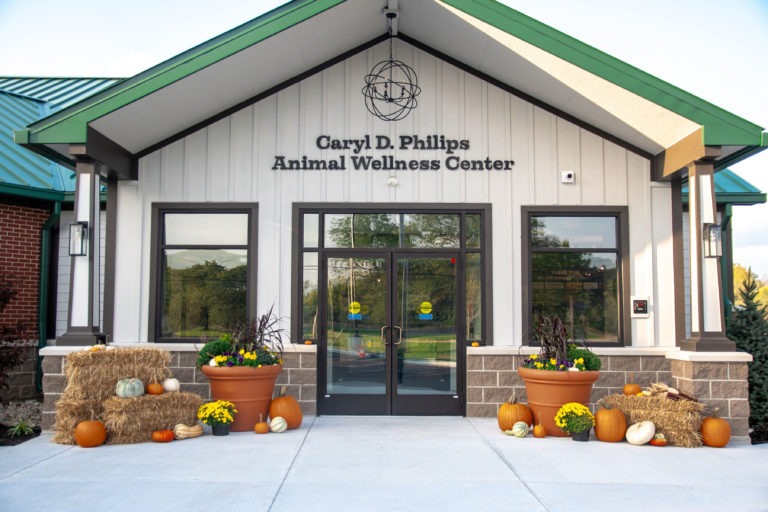
Dayton Humane Veterinary Hospital
1661 Nicholas Road Dayton, OH 45417
(937) 965-4399
Hours of Operation:
Sunday – Closed
Monday – 8 a.m. to 5:30 p.m.
Tuesday – 8 a.m. to 5:30 p.m.
Wednesday – 8 a.m. to 5:30 p.m.
Thursday – 8 a.m. to 5:30 p.m.
Friday – 8 a.m. to 5:00 p.m.
Saturday – Closed
Office is closed each day between 12:00 and 1:00 p.m. for lunch.
The Dayton Humane Veterinary Hospital is part of the Humane Society of Greater Dayton’s campus. This facility also works closely with the Dayton Humane Spay/Neuter Clinic at the Humane Society of Greater Dayton to provide you with the top-quality care your pet deserves!
Common Veterinary Questions Answered
How much does it cost to spay or neuter my pet?
The Humane Society of Greater Dayton provides low-cost spay or neuter surgeries for cats and dogs through our Dayton Humane Spay/Neuter Clinic. Please call us at (937) 965-4400 to schedule a time for your pet to be spayed or neutered.
Cats:
Normally, owned cats are spayed or neutered for $75, plus an additional $18 if your pet requires a rabies vaccination.
For our Community Cat Program, to spay or neuter a community or feral cat costs varies from free to $5 per cat depending on the city/township in which you reside. This program is also made possible through the Joanie Bernard Foundation.
Dogs:
Pricing for owned dogs is as follows:
- Dog Neuter (2-40 pounds) – $135
- Dog Neuter (41-80 pounds) – $175
- Dog Neuter (81+ pounds) – $215
- Retained testicle – $25
- Dog Spay (2-40 pounds) – $160
- Dog Spay (41-80 pounds) – $200
- Dog Spay (81+ pounds) – $240
- Pregnancy – $25
- Plus the additional rabies vaccination – $18
My pet needs emergency care, what should I do?
If your pet requires emergency care, you will need to go to a 24/7 emergency care facility. In the Dayton area, you can contact:
Dayton Care Center
(937) 428-0911
6421 Clyo Road, Centerville, OH 45459
Dayton MedVet
(937) 293-2714
2714 Springboro West, Moraine, OH 45439
Do you offer financial assistance?
Yes. If you are receiving public assistance such as Medicaid, SNAP, WIC or housing assistance you could qualify for a Dayton Humane Membership that gives you a 20% discount on procedures and medications.
All clients are also able to access our payment plan options for more expensive veterinary visits. These payment options are not credit based and offer our clients up to a year to pay their veterinary bill. Please contact our team to discuss our financial options by calling us at (937) 965-4399.
Care Credit
Vet Billing
Varidi
How do I schedule an appointment?
If you need to have your pet spayed or neutered, please contact the Dayton Humane Spay/Neuter Clinic at (937) 965-4400. Please leave a message with a brief description of your needs and someone will get back to you to set up a time.
For all other veterinary needs, please contact the Dayton Humane Veterinary Hospital at (937) 965-4399. We are open Monday through Thursday and a receptionist will be able to help you schedule your pet’s appointment.
You can also fill out a form here to start your appointment process online.
What services are available at the Dayton Humane Veterinary Hospital?
We provide many services to help keep your pets healthy. All services are available by appointment only. Please call (937) 965-4399 to schedule your appointment. Services provide include:
- Physical exams
- Vaccinations
- In-house laboratory testing
- X-rays
- Chronic illness management
- Allergy management
- Illness or injury
- General surgery
- Dental cleanings and extractions
- Dental x-ray
I need to put my pet down. Do you offer this service?
Saying goodbye to a beloved pet is never an easy thing to do. The Dayton Humane Veterinary Hospital does provide humane euthanasia, which is a medical procedure that the veterinarians can offer after a consultation with the owner and a physical exam of the pet. We know these decisions are very difficult and our staff is committed to a kind and gentle end of life experience.
There are two options for the care of the remains including cremation with a return of ashes to the owner or cremation with ashes scattered at a nature preserve in Columbus.
Why should I get my pet spayed or neutered?
Every year millions of unwanted dogs, cats, puppies, and kittens are euthanized due to there not being enough homes for all of them. As pet owners, you can directly help to reduce the number of unwanted animals in the United States by spaying and neutering your pets, along with protecting against some serious health problems and reducing unwanted behaviors associated with mating instincts.
An ovariohysterectomy or a typical “spay” involves removing the ovaries, fallopian tubes, and entire uterus in a female dog or cat. By removing these organs, it prevents her from being able to have litters and eliminates her heat cycle. During a heat cycle, dogs and cats may exhibit certain mating behaviors such as increased vocalization, frequent urination, and urine marking. Removal of the ovaries generally reduces these unwanted mating behaviors, along with preventing owner frustration. Early spaying of females can also protect them from some serious health problems such as uterine infections (pyometra) and breast cancer. Breast tumors are cancerous or malignant in approximately 50 percent of dogs and 90 percent of cats. Spaying before the first heat cycle offers the best protection against breast cancer in cats and dogs.
An orchiectomy or a typical “neuter” involves removing both testicles in a male dog or cat. Removal of the testicles eliminates his ability to reproduce and reduces his breeding instinct, making male cats and dogs less likely to roam from home or fight with other intact males. Unneutered dogs and cats are also more likely to urine mark their territory, mount people and inanimate objects, or be aggressive. Early neutering can reduce these behaviors in our pets. Neutering can also prevent testicular cancer and reduce the risk of some prostate problems.
Spaying and neutering are also very cost-effective! The cost of caring for a litter of puppies or kittens or an emergency surgery for a pyometra is much more expensive than the cost of a routine spay or neuter. The surgical procedure does not affect your pet’s intelligence or his or her ability to work, play, learn, or hunt. Many animals actually tend to be better behaved after being spayed or neutered, making them more desirable pets.
By spaying and neutering your pets, you can do your part to help prevent the birth of unwanted puppies and kittens. Please consult with your veterinarian on when is the appropriate time to spay or neuter your dog or cat, and for any further questions or concerns regarding spay and neuter.
To schedule your pet’s spay or neuter surgery with us, contact the Dayton Humane Spay/Neuter Clinic at (937) 965-4400.
Why are vaccinations important?
Vaccinations are an important part of preventive care because they prevent the spread of disease or illness in our animal populations. A vaccine is a product designed to trigger the body’s protective immune response by stimulating the production of antibodies that will identify and destroy disease-causing organisms that enter the body. Vaccines can provide immunity against a variety of diseases and will also lessen the severity of disease or prevent the disease altogether when an animal has been exposed.
Reasons to vaccinate your pets:
- Vaccines prevent many animals from developing certain illnesses, such as parvovirus or distemper.
- Vaccines can help avoid costly treatments for diseases that can be prevented with vaccination (ex: parvovirus).
- Many diseases that can be passed between animals (ex: parvovirus, distemper, panleukopenia, etc.) and from animals to humans (ex: rabies and leptospirosis) can be prevented with vaccinations.
- Many state and local ordinances require vaccination of household pets (ex: rabies).
- Vaccinations protect your pet from contagious and deadly diseases and increase your pet’s quality of life.
As with any medical treatment, there are some associated risks, but the risks of vaccinations should be weighed against the benefits of protecting your pet and family from potentially deadly diseases. Most side effects from vaccinations in animals are mild and short-term. These side effects often will develop shortly after vaccination, and some may last for 24 to 48 hours. Mild side effects from vaccinations seen in animals include pain or swelling at the injection site, decreased activity or appetite, and sneezing or “snotty nose” if an intranasal vaccine is administered. More severe but less common side effects, such as allergic reactions, include swelling of the muzzle, face, eyes, or neck, hives or bumps visible over the skin, difficulty breathing, and collapse. These side effects are potentially life-threatening and if your pet develops any of the listed symptoms, contact your veterinarian immediately.
For most pets, vaccination is an effective means of preventing future diseases or lessening the severity of clinical signs associated with that disease. Following the vaccination schedule provided to you by your veterinarian is important in making sure there is no potential gap in protection. Please contact your veterinarian for any further questions regarding vaccinations.
If you have questions about vaccinations or would like to schedule a time to have your pet vaccinated, please contact the Dayton Humane Veterinary Hospital at (937) 965-4399.
What sort of preventative care should I do for my pet?
Preventive healthcare refers to a combination of services done by your veterinarian to assess your pet’s overall health status, prevent the spread of disease, and increase your pet’s quality of life. Basic preventive veterinary care includes an annual examination by a veterinarian, vaccinations, laboratory diagnostic testing, routine spay/neuter, and heartworm/flea/tick prevention. Dental care, nutrition, and behavioral enrichment or training are also often incorporated into preventive care.
It is recommended that most animals have a physical exam at least once a year. However, more frequent visits may be necessary depending on if your animal is older or has any health issues. Just like people, animals have ranges in what is considered “normal” for them. By having an exam done yearly, the veterinarian can detect changes in your pet’s health earlier and may prevent some disease processes before they become a problem.
Vaccinations are also an important aspect of preventive care because they help prevent the spread of disease. Every dog and cat should receive core vaccinations at the time of their annual exam. For dogs, these vaccinations include rabies, canine distemper virus, canine parvovirus, and canine adenovirus. Other non-core vaccinations like Bordetella, canine influenza, Lyme disease, and leptospirosis will be recommended by your veterinarian based on your dog’s lifestyle and disease risk. Core vaccinations for cats include rabies, feline panleukopenia, feline herpesvirus, feline calicivirus, and for kittens, feline leukemia.
Feline leukemia is considered a non-core vaccination in adult cats and therefore is only given to cats at risk based on their lifestyle.
Along with vaccinations, every dog and cat should receive an annual fecal or stool analysis for intestinal parasites. Many intestinal parasite eggs and larvae live naturally in the soil, so our pets can easily become infected when they go outside for walks, play, or bathroom breaks. It is also important to remember that some of the intestinal parasites our animals can be infected with are zoonotic, meaning they can be transmitted to humans. Roundworms and hookworms are intestinal parasites that can readily infect humans, and both are screened for during a fecal examination. Annual heartworm testing is also recommended for all dogs, along with monthly heartworm prevention. Heartworms are transmitted by mosquitoes, and it takes 6 months after a dog was bitten to detect the disease. Due to this long lifecycle and lapse in time to get a diagnosis, monthly heartworm prevention is recommended to be given year-round. Screening for feline leukemia and feline HIV is recommended in cats based on age, lifestyle, and disease risk. Lastly, year-round flea, tick, and intestinal parasite prevention are recommended for both dogs and cats. Both fleas and ticks can cause a variety of diseases and health problems in our furry friends, such as flea allergies, tapeworms, Lyme disease, and Ehrlichia.
Another important component of preventive care is routine spaying and neutering. Controlling the pet population is important, and surgically altering your pet can prevent unwanted litters of puppies or kittens. Spaying and neutering also prevent other health issues such as pyometra (infected uterus) and mammary cancer in females and prostate problems and testicular cancer in males. Undesirable behaviors resulting from hormonal urges are also eliminated if your pet is surgically altered.
Preventive care is an important aspect of your pet’s medical care, and your veterinarian will determine what is appropriate for your pet in each of the above categories. Please discuss with your veterinarian which areas of preventive care are important and recommended for your pet.
Please contact the Dayton Humane Veterinary Hospital to discuss the best preventative care for your pets at (937) 965-4399.
Take a Sneak Peek Inside Our Hospital!
The Humane Society of Greater Dayton is thrilled to now offer the community a full-service animal care facility through the new Dayton Humane Veterinary Hospital. Located inside the Caryl D. Philips Animal Wellness Center, our hospital provides pet owners with top-quality care at reasonable prices. Take a virtual tour of the Dayton Humane Veterinary Hospital—a state-of-the-art animal hospital at the Humane Society of Greater Dayton, where quality care meets community compassion.
Schedule Your Pet's Appointment Today
Please fill out the form through the link below or call us at (937) 965-4399, and we will have someone reach out to you to schedule a time for one of our veterinary services.
